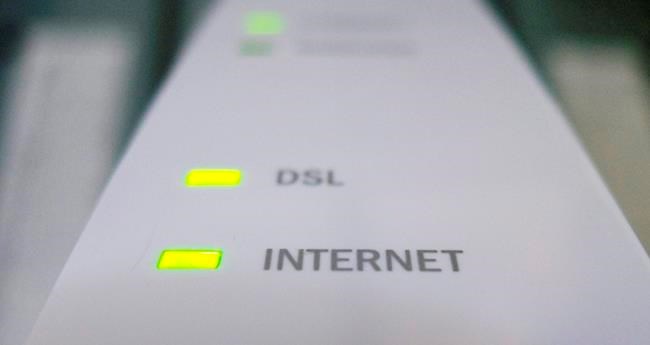TORONTO — More signs of trouble emerged in Canada's telecommunications sector as a result of COVID-19 this week when Shaw Communications announced it would temporarily lay off 10 per cent of its workforce despite surging demand for wireless, internet and cable services as Canadians work and entertain themselves from home an effort to combat the pandemic.
The Calgary-based company's announcement late Tuesday, affecting up to 1,000 people, came just days after it provided a cautious but hopeful financial report to analysts and said most of its business was performing well operationally during the crisis — although Freedom Mobile sales had plunged due to store closures.
“Our network upgrades over the past few years have put us in a solid position to handle increased traffic," Shaw president Paul McAleese said in a statement, repeating a message delivered last week.
It said traffic on its land lines was up as much as 50 per cent and voice traffic on Freedom was up 25 per cent, although wireless data usage was down as more phones used residential WiFi and internet.
Shaw's move follows Quebecor's announcement last month that it would temporarily lay off 10 per cent of its workforce — also roughly 1,000 people — to comply with a provincial order to discontinue non-essential business activity as part of the fight against the COVID-19 virus.
Their announcements come ahead of financial reports by Rogers on April 22 and by BCE's Bell Canada and Telus on May 7. Quebecor closes out the sector's earnings season on May 14.
Scott Rattee, DBRS Morningstar's senior vice-president for the communications and media sector, says he thinks Canada's major telecom providers generally "have the operational stability — and diversification of product base and subscriber base — to manage through this crisis."
Rattee says even the industry's biggest players have had to bear the cost of equipping their own employees to work from home and will likely see some of their revenue streams diminished.
Rogers, which has equipped thousands of its employees to work at home while providing customer support, hasn't been specific about layoffs but announced in early March that it was "unable at this time to predict its impact on our operations, liquidity, financial condition and results, but the impact may be material."
Independent telecom consultant Mark Goldberg says people "are consuming a lot of internet and TV" while working and studying from home.
But despite the high performance and value of those services, Goldberg says "a big question mark for everybody is this risk on bad debt."
"I think telecom services are proving themselves to be an essential part of everybody's family budgets. But just like we're seeing government get involved with mortgage debt, I think there's going to be a question mark about the level of bad (customer) debt that could be out there."
Rattee, who primarily analyses the ability of companies to pay their corporate debt and dividends, says he thinks the major telecom companies are all in good financial shape themselves — with cash reserves or available credit, no major debt coming due soon, and the ability to continue operations through the crisis.
But he expects most pre-tax earnings forecasts by the telecom sector will be suspended or cut and, generally, there could be negative EBITDA (earnings before interest, taxes, depreciation and amortization) — one of the financial metrics that influence the telecom sector's earnings power.
With Shaw having an Aug. 31 year end, rather than Dec. 31, it may provide hints of what's in store for the three carriers with national wireless networks that complement their wireline networks — although each has a different collection of business assets, operational territories and corporate strategies.
Shaw, which operates one of Western Canada's main cable TV and internet services as well as Freedom Mobile, said late Thursday it had saved on the cost of subsidizing the cost of smartphone hardware due to a lack of sales while most of its retail stores were closed due to physical-distancing precautions.
However, it also said it would have to take measures to reduce its costs "soon" without being specific.
Canaccord Genuity analyst Aravinda Galappatthige wrote in a research note after Shaw's report that he took some comfort that it still expected that its 2020 adjusted EBITDA will be higher than last year "which is meaningful . . . and may not be emulated by its peers."
This report by The Canadian Press was first published April 15, 2020.
Companies in this story: (TSX:RCI.B, TSX:BCE, TSX:T, TSX:SJR.B, TSX:CCA, TSX:QBR.B)
David Paddon, The Canadian Press



